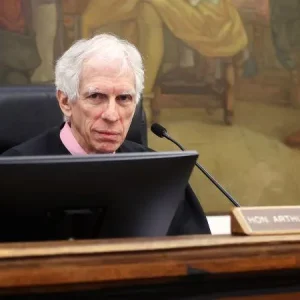The debate over immigration enforcement in the United States has intensified as some state governors openly defy federal immigration authorities, particularly U.S. Immigration and Customs Enforcement (ICE). These governors have enacted policies or issued directives that limit cooperation with ICE, including refusing to honor detainer requests, barring state agencies from sharing information, or prohibiting local law enforcement from assisting in federal immigration raids. This defiance has sparked a contentious question: Should governors who block ICE operations be charged with obstruction?

Supporters of such charges argue that no one, including governors, is above the law. They contend that immigration enforcement is a federal responsibility, and any attempt to interfere with that process amounts to obstruction of justice. By refusing to cooperate with ICE, these governors are allegedly hampering the execution of lawful federal duties, particularly when dealing with undocumented immigrants who may have committed serious crimes. For these advocates, prosecuting governors who obstruct ICE is not just about policy disagreements—it’s about upholding the rule of law and ensuring that federal mandates are respected.
Moreover, critics point out that selective enforcement of the law by state leaders sets a dangerous precedent. If governors can pick and choose which federal laws they will follow or enforce, the integrity of the entire legal system is called into question. In this view, allowing governors to block ICE without consequence could embolden other forms of resistance to federal authority, creating a fragmented and chaotic approach to governance.
On the other hand, opponents of charging governors with obstruction argue that states have the right to determine how their resources are used, especially when it comes to local law enforcement. They contend that compelling local agencies to act as extensions of federal immigration authorities blurs the lines of jurisdiction and can erode community trust. Many local leaders argue that cooperation with ICE deters undocumented residents from reporting crimes or engaging with public services, fearing deportation or harassment.
In addition, there is a legal gray area when it comes to defining obstruction in these cases. The U.S. Constitution does grant certain powers to the federal government, but it also preserves rights for states. Courts have generally affirmed that while states cannot actively interfere with federal operations, they are not obligated to use their own resources to assist. This distinction is critical. Simply refusing to participate in ICE activities is not necessarily equivalent to obstructing them. Charging governors under obstruction statutes could therefore raise serious constitutional questions and spark prolonged legal battles.
Political motivations cannot be ignored, either. Immigration remains one of the most divisive issues in American politics, and both sides often use it to galvanize their bases. Calls to charge governors may stem as much from political theater as from genuine legal reasoning. In such a polarized climate, actions taken against governors could be seen less as a defense of law and more as a means of punishing political opponents.

In the end, whether governors should be charged with obstruction for blocking ICE operations is a deeply complex question, entangled in legal nuance, federalism, and political ideology. It forces the country to reckon with the balance between federal authority and state autonomy, and the broader debate over how immigration enforcement should be handled in a divided nation.






